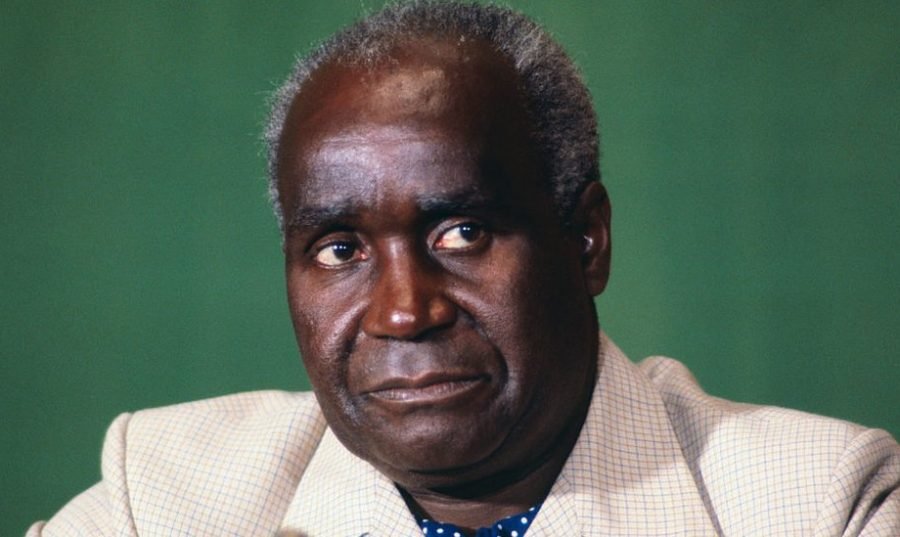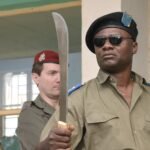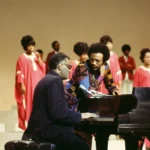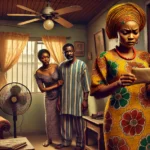Herbert Macaulay: The Father of Nigerian Nationalism

The colonial era was brutal for Nigerians. Even though there is little information to account for all that happened during that period, it is evident oppression was high. Indigenes suffered segregation, land grabbing, and ludicrous taxes imposed on them. Under colonial rule, Nigerians had no representation in government. Eventually, one man who stood up to fight the oppressive system was Herbert Macaulay.
Herbert Macaulay stood out for his funny moustache and his famous portrait on the one Naira note. To others, his name rings bells on some streets in Abuja and Lagos, Nigeria. For many, Herbert Macaulay represents one of the heroes who challenged the colonial government and carved a blueprint for an independent Nigeria. He adopted a nationalistic approach for a united Nigeria after his efforts in Lagos succeeded.
Herbert Heelas Macaulay was born on 14 November 1864 in Lagos. He was the seventh child of his Sierra Leonean parents, who were then considered influential. Tom Babington Macaulay, his father, was the first principal of the CMS Grammar School in Lagos. Sam Ajayi Crowther, the first Anglican Bishop of West Africa, was his grandfather.
Herbert studied civil engineering in Britain before he got involved in politics. When he returned to Lagos, the colonial government appointed him Surveyor of Crown Lands. He resigned five years later for what he classified as racial discrimination against indigenous civil servants by the European elite.
The Anti-slavery Aborigines Society
Macaulay veered into politics in the late 1900s. He joined the society of anti-slavery activists, which is considered the oldest international human rights group. Herbert went against the colonial government on many occasions. For example, in 1908, he exposed corruption in the railway system. In 1915, Macaulay spoke against the payment of water rates. Also, as the leader of the anti-slavery aborigines in Lagos, he opposed the land tenure system in Lagos and across Yorubaland. Unfortunately, progress was stifled by the Aboringes because of an existing conflict between the Lagos arm and the London arm of the movement.
Representing the Eleko in Britain
In 1921, the Eleko (King of Lagos) sent Herbert Macaulay to represent him in Britain concerning the Apapa land tenure case. Macaulay spoke about how the land tenure system affected the Eleko, known as the King of Lagos. Also, he accused the British of denying the paramount ruler of his rightful land. Sir Herbert’s prominence rose among his people from his activities. This situation embarrassed the British so much. They reversed the land case in favour of the Eleko. His fluency in English and understanding of British and Yoruba traditions helped him serve as an advocate for his people. His influence made him a target of the colonial masters, whose agenda ended up weakened by his many victories.
Journalism and Co-founded the Nigerian Daily News (the first daily newspaper owned by a Nigerian)
Herbert Macaulay got barred from running for public office due to legal dilemmas from his past criminal history. He was convicted twice by the colonial government in Lagos. Once for fraud and another time for sedition. However, he found an outlet in journalism. He was a great writer and contributed immensely to the Nigerian Chronicle. In 1927, he teamed up with his friend John Akilade to buy the Lagos Daily News. The Lagos Daily News was the first Nigerian daily newspaper established in 1925. The newspaper gave Herbert Macaulay a platform to speak against the government and his political opponents. The Lagos Daily news played a significant role in the growth of the NNDP. Subsequently, other daily newspapers began to rise.
The Nigerian National Democratic Party (the first Nigerian political party)
The Hugh Clifford constitution of 1922 introduced four seats for Nigerians in the legislative council; three seats for Lagos and one for Calabar. The introduction of this constitution led to the establishment of political parties. Herbert Macaulay used his influence and political activism to establish the Nigerian National Democratic Party (NNDP). Due to his legal record, he could not run for office and served as the party leader.
The NNDP, regarded as the first Nigerian political party, functioned primarily to put candidates into the legislative council. The broad objective of its organization was promoting democracy and increasing the participation of Nigerians in the social, economic, and educational development of Nigeria. The NNDP dominated the Lagos legislative council in 1923, 1928, and 1933 but got ousted in 1938. The Nigerian Youth Movement (NYM) became the favoured choice of the people.

The National Council of Nigeria and Cameroons (NCNC)
In 1944, Herbert Macaulay collaborated with the National Youth Movement to establish the National Council of Nigeria and Cameroons (NCNC). The formation of the NCNC also served as the first time Herbert Macaulay took his political ideologies beyond Lagos. He collaborated with people like Nnamdi Azikiwe from the Eastern region. Also, the mission of the party was different. There were highly concerned with having a national reach and attaining an independent Nigeria. Macaulay was the first President of the party, while Nnamdi Azikiwe served as the party secretary. Unfortunately, he did not live to see Nigeria gain independence in 1960. In 1946, Herbert fell ill on a campaign trip with the NCNC in Kano. He died some months after in Lagos at 81.
Final Thoughts
Herbert Macaulay was no saint. He came from a privileged background, was rumoured to have several mistresses, and allegedly fathered children from other women. Although favoured by the British, his cause soon turned against them, becoming the voice of his people. He knew what he wanted and capitalized on his opportunistic streak to get it. Things did not always work in his favour. He had down moments such as going to jail twice. During his second jail term, he faced hard labour for six months, which affected his health and well-being.
When his party (NNDP) failed to progress in the election, he saw the importance of collaboration for the National interest with a goal set around the attainment of independence. Through it all, he soldiered on, making great strides. All the actions Herbert Macaulay took and the significant role he played in politics in the colonial era affected Nigerian nationalism and politics. Nnamdi Azikiwe learned from him and went on to become the first President of Nigeria after independence. His role in the media and journalism also shows the importance of the press in shaping public opinion in society.
Sarauta Icons takes a deep dive into the lives of individuals who made an impact on African society. You can read about other icons here








